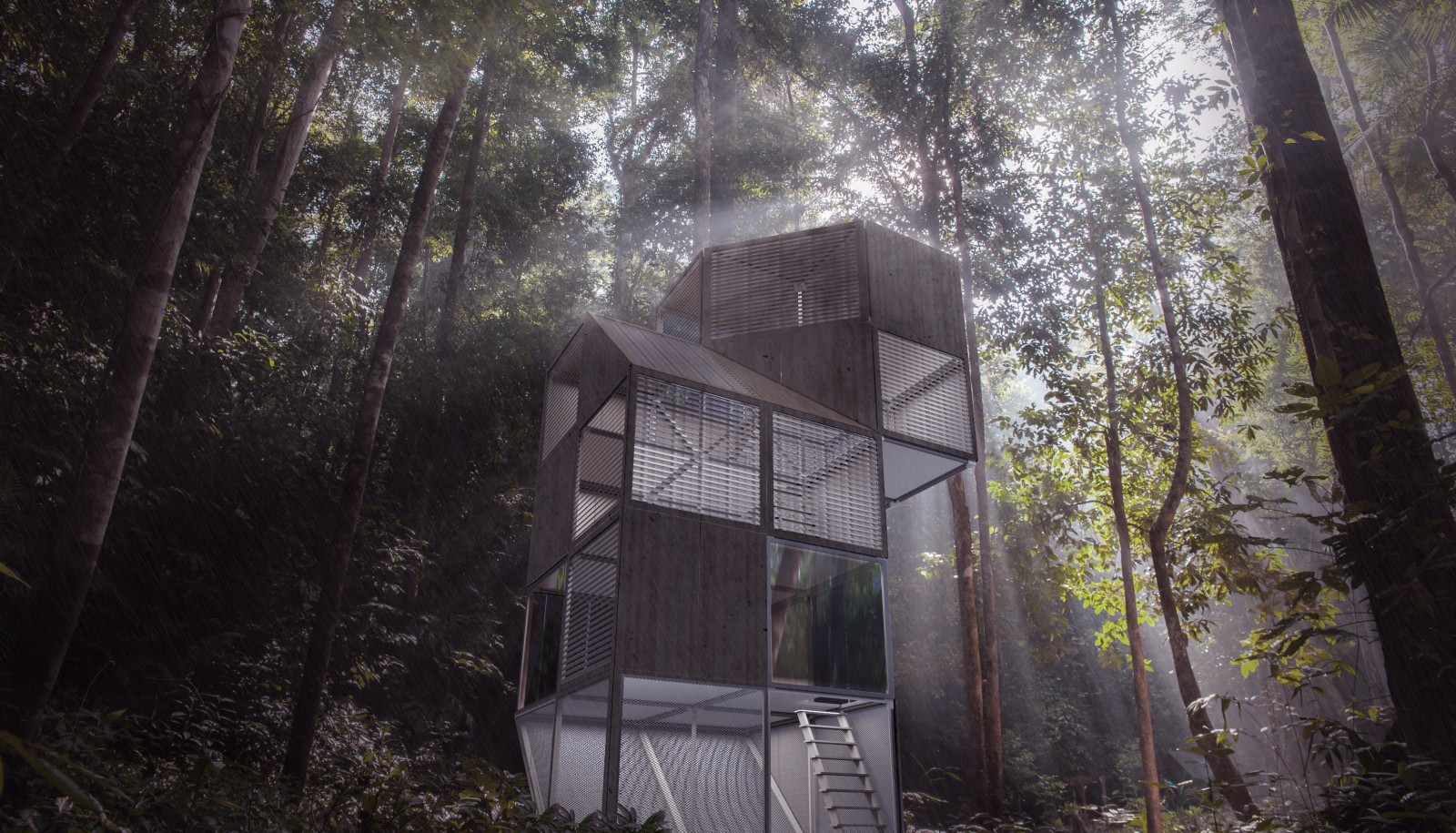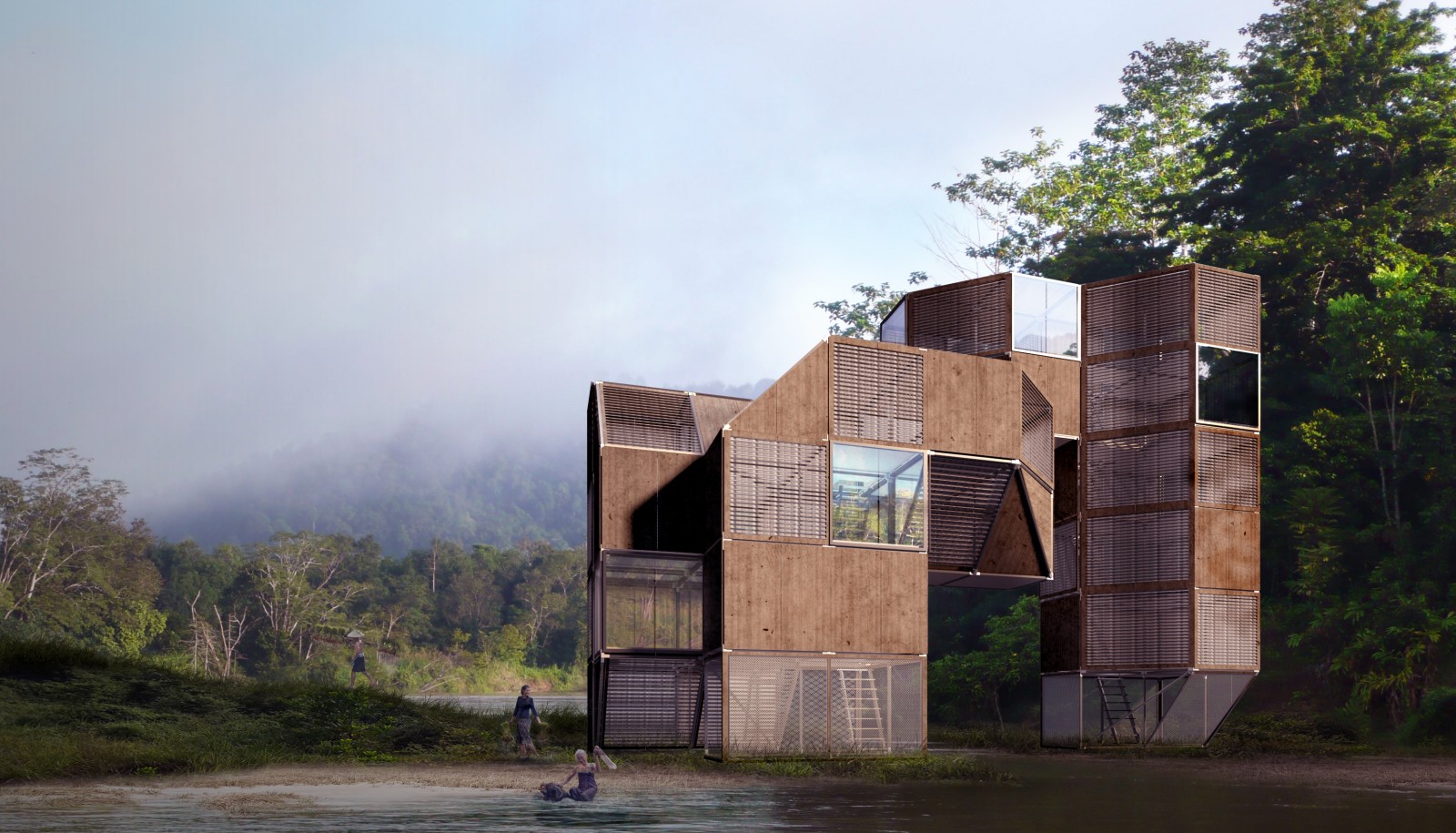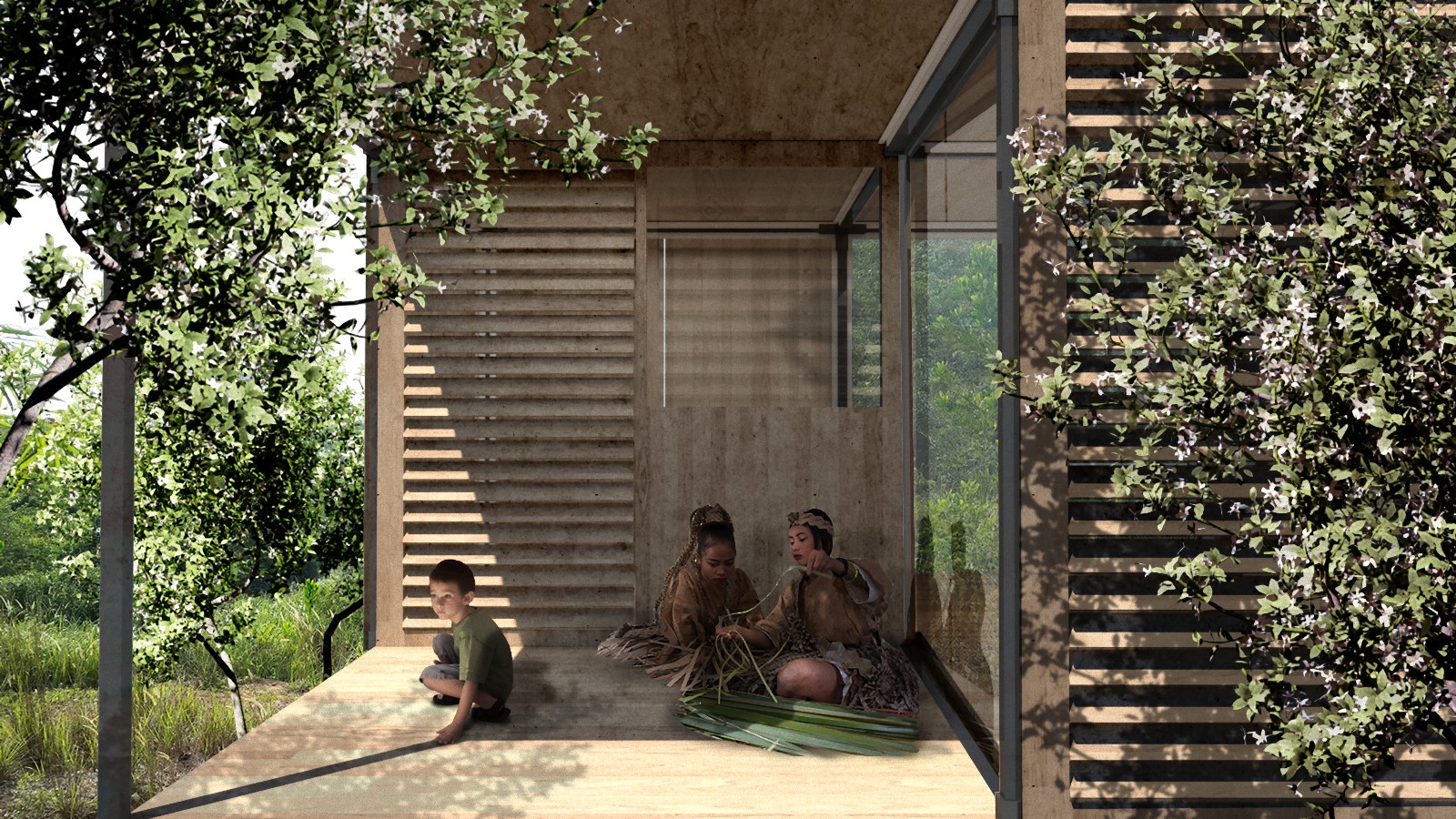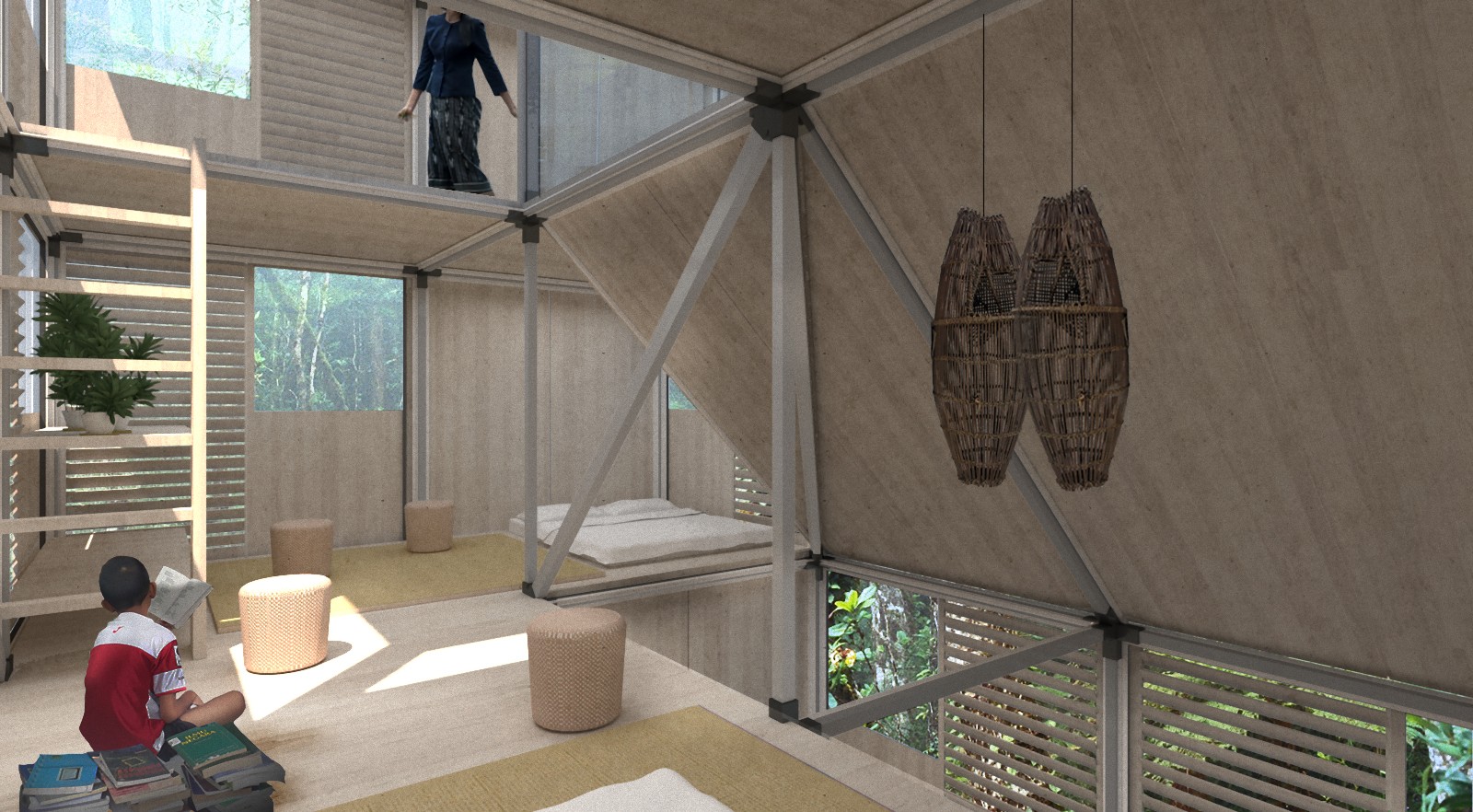ASLI (An Aggregated System to Live In)
ASLI (An Aggregated System to Live In)
The Tropical House for Orang Asli Design Competition is part of the KUALA LUMPUR ARCHITECTURAL FESTIVAL 2019 (KLAF2019: TOMORROW)’s programme in collaboration with Epic Society.
Rural Housing: Modular system for housing in the forest
Housing is a problem that is universal in many societies around the world. Its seriousness is matched by the sheer number of proposals, experts, and cash to alleviate the problem. However, these efforts are focused almost exclusively on inner city dwellings and the detrimental effects of urban blight. Rarely do policymakers, the media, and communities at large pay a similar attention to the Orang Asli people, who face a housing crisis of a similar magnitude: not in terms of number of populations, but in terms of repercussions to rapidly declining rural hinterland.
Our research shows that there are three main challenges to this problem: a) the economics of construction, funding, and resource allocation; b) the rapid deployment of units in villages that cannot undertake basic construction work; and c) the issue of expansion and flexibility arises when the village communities grow both in size and income.
In direct response to these issues, our ASLI proposal calls for a new way of addressing the rural-urban divide, such that solutions for the Orang Asli are long term strategies with sustainable outcomes. We built upon a tried-and-tested system of prefabrication modular systems and designed a system that is specific to the Orang Asli way of life and the conditions and contexts in which they live. The cost and quality of these systems can be controlled via economies of scale in production and an industrialized mechanism for manufacturing of these parts. These systems are designed to be transported in shipping containers, small trucks that can access villages, or pallets for helicopter drop-offs for hostile terrains. Lastly the housing components are easily built, dismantled and rebuilt, and infinitely expandable due to its simple frame-and-panel system.
The most important element that is factored into the design is that its economics of production can be distributed to various parties nationwide. Like the Airbus aerospace production system where parts of manufactured in various towns in Europe, we envision that the ASLI systems can be produced in specialized factories. In a non-profit or charity-based scenario, the cost of component type can also easily be “partitioned,” thus simplifying the sponsorship domains for donors. For example, a reused wood company may sponsor material for cladding panels only. Furthermore, the system will be simple to build, constructed by volunteer laymen and overseen by few on-site professionals.
An aggregated system suggests not only that the housing units are composed of discrete components that can join in multiple ways, but also that the units can multiply indefinitely into an urban ecosystem of units serving the community. Because of its modular nature, the ASLI blocks can propagate on any terrain. This allows the communities to have better options for locating villages, especially in order to be close to natural streams and other resources.
Multiplicity of combinations and permutations is crucial to the success of such a system because each family would be able to tailor their dwelling to their various needs. This allows each of these families who get wealthier to grow, or to expand the house based on need over time. This also allows the community to grow without having to relocate, and hence be able to continue to work on their ancestral land. Such built-in flexibilities create a holistic sense of ownership, group accountability, and empowerment for a group of people who need it most. Ultimately, ASLI is compatible with the ecosystem and the culture of the Orang Asli people.
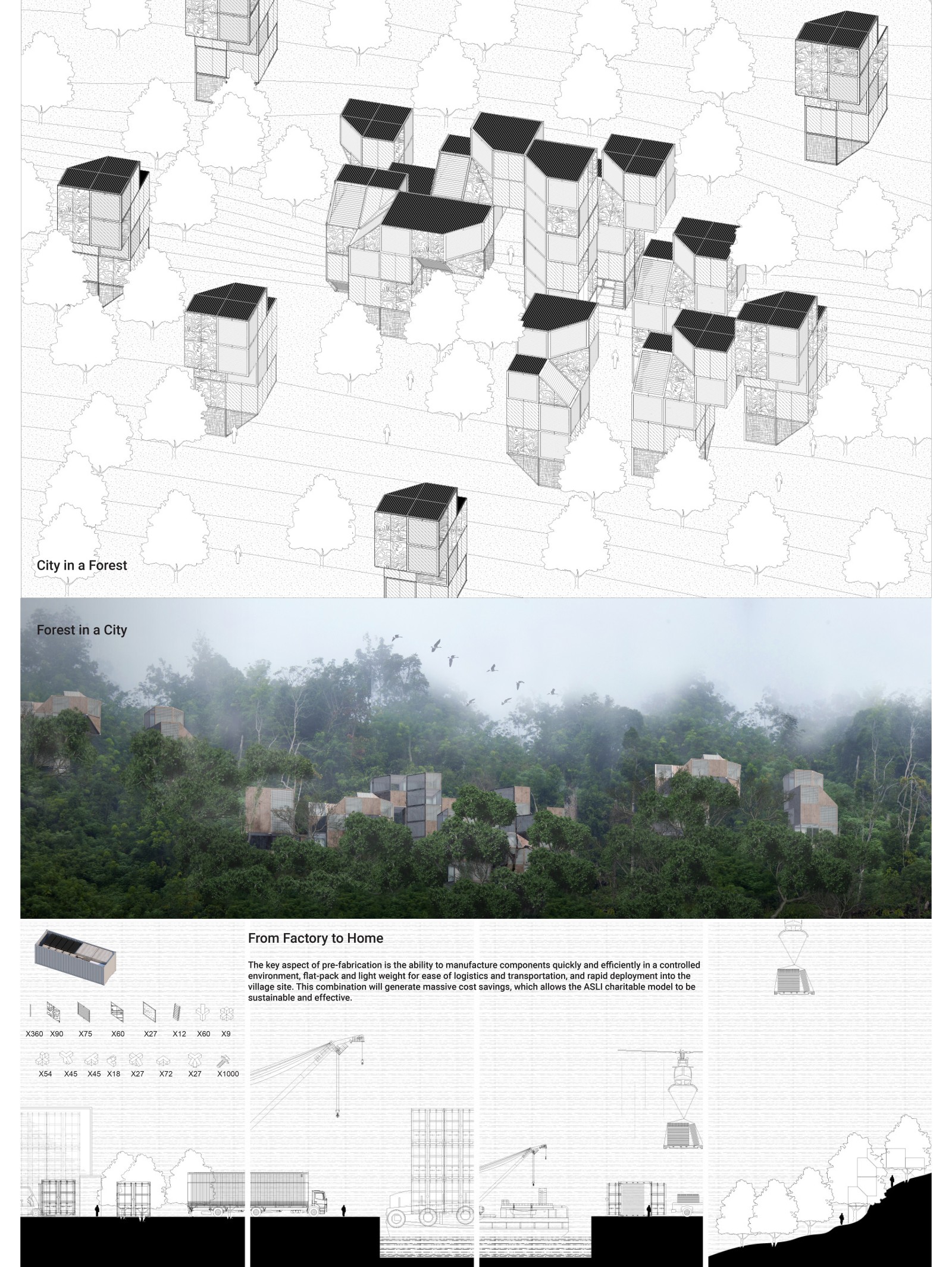
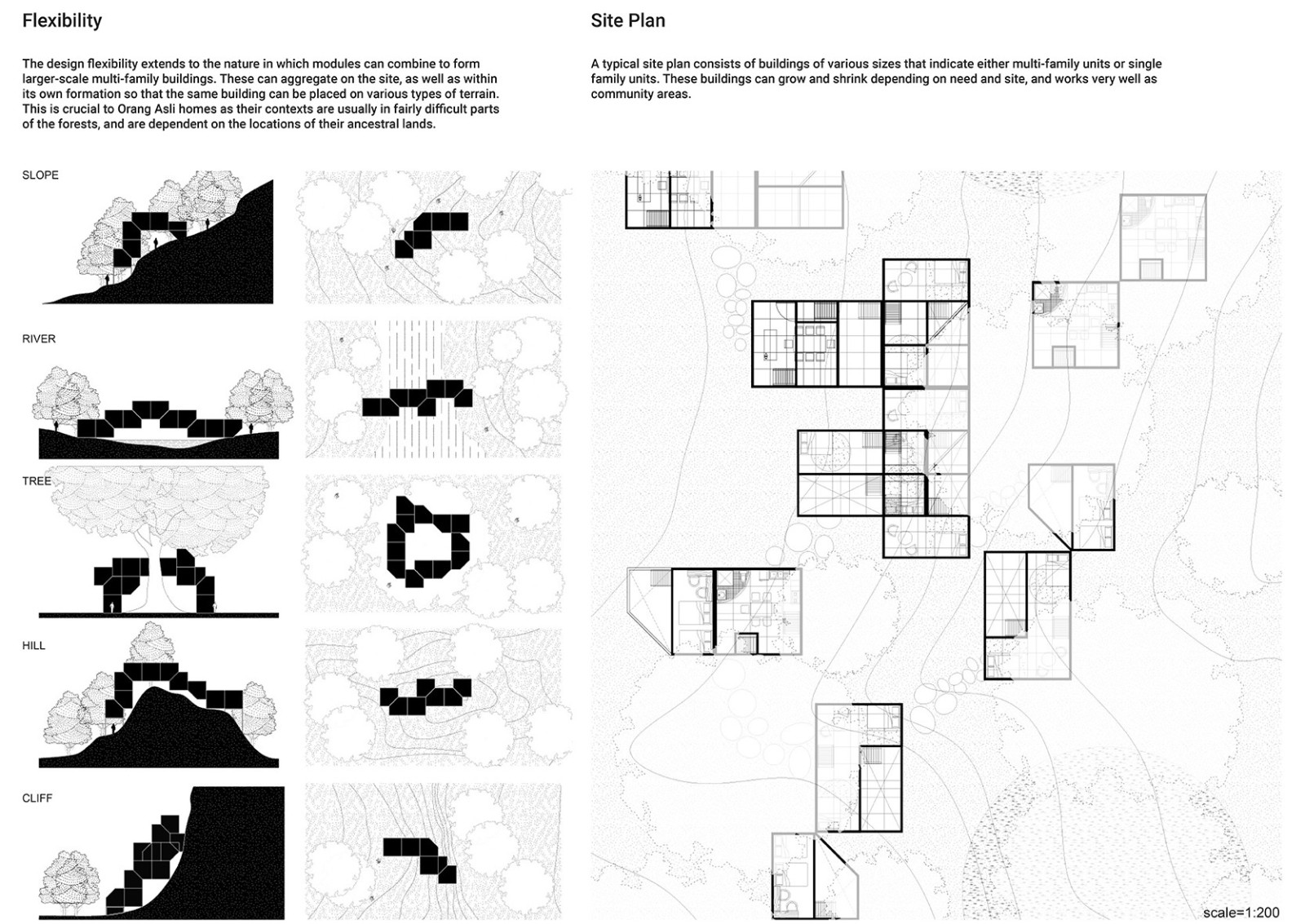
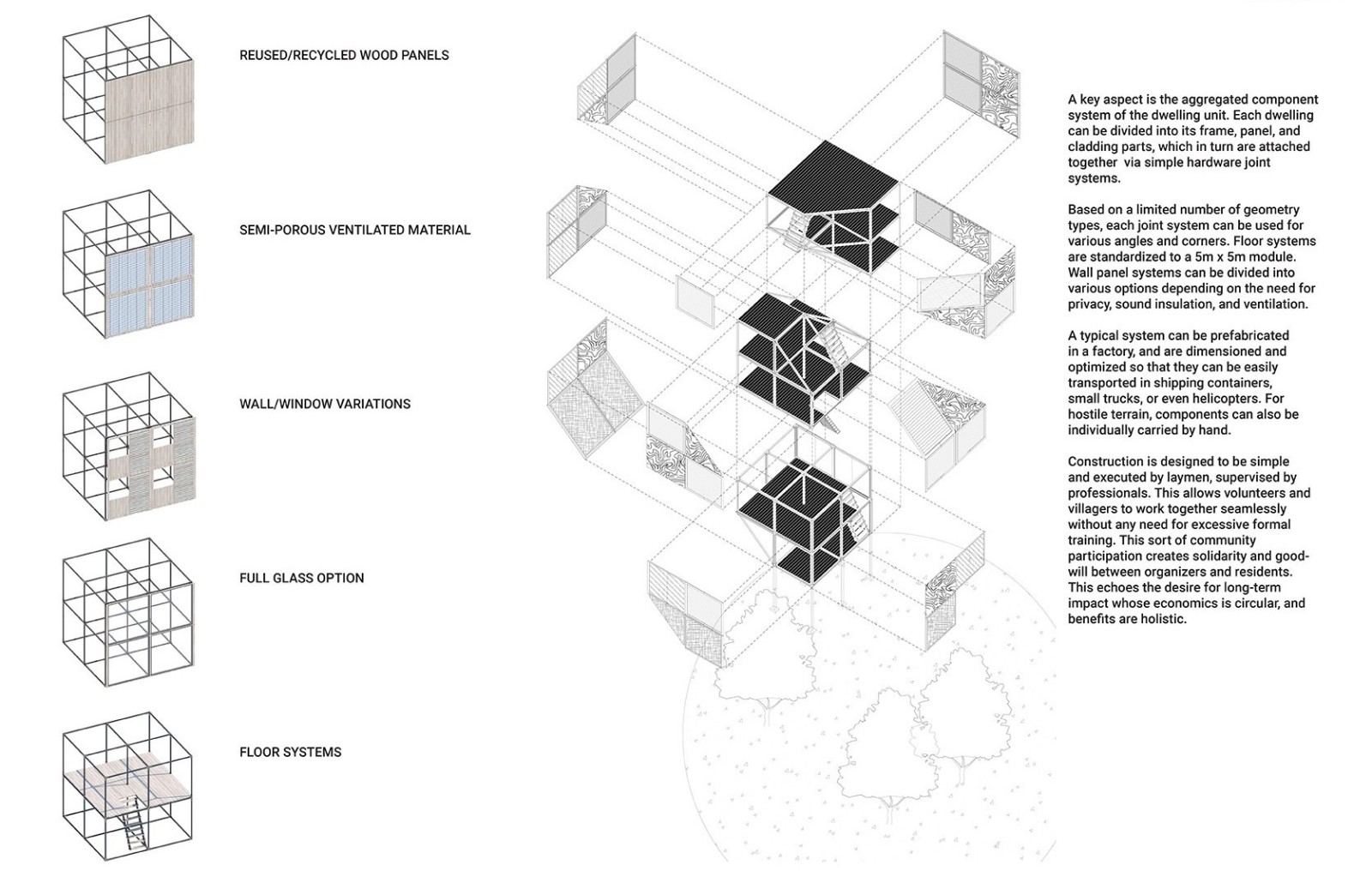
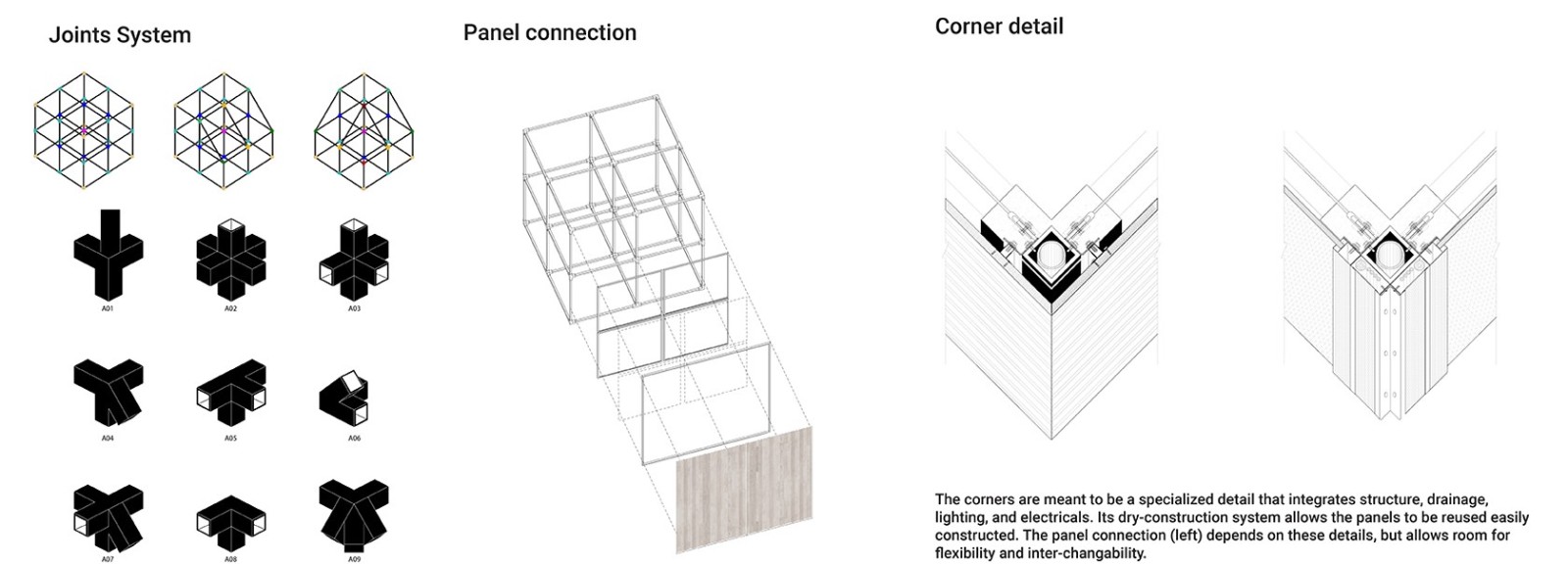
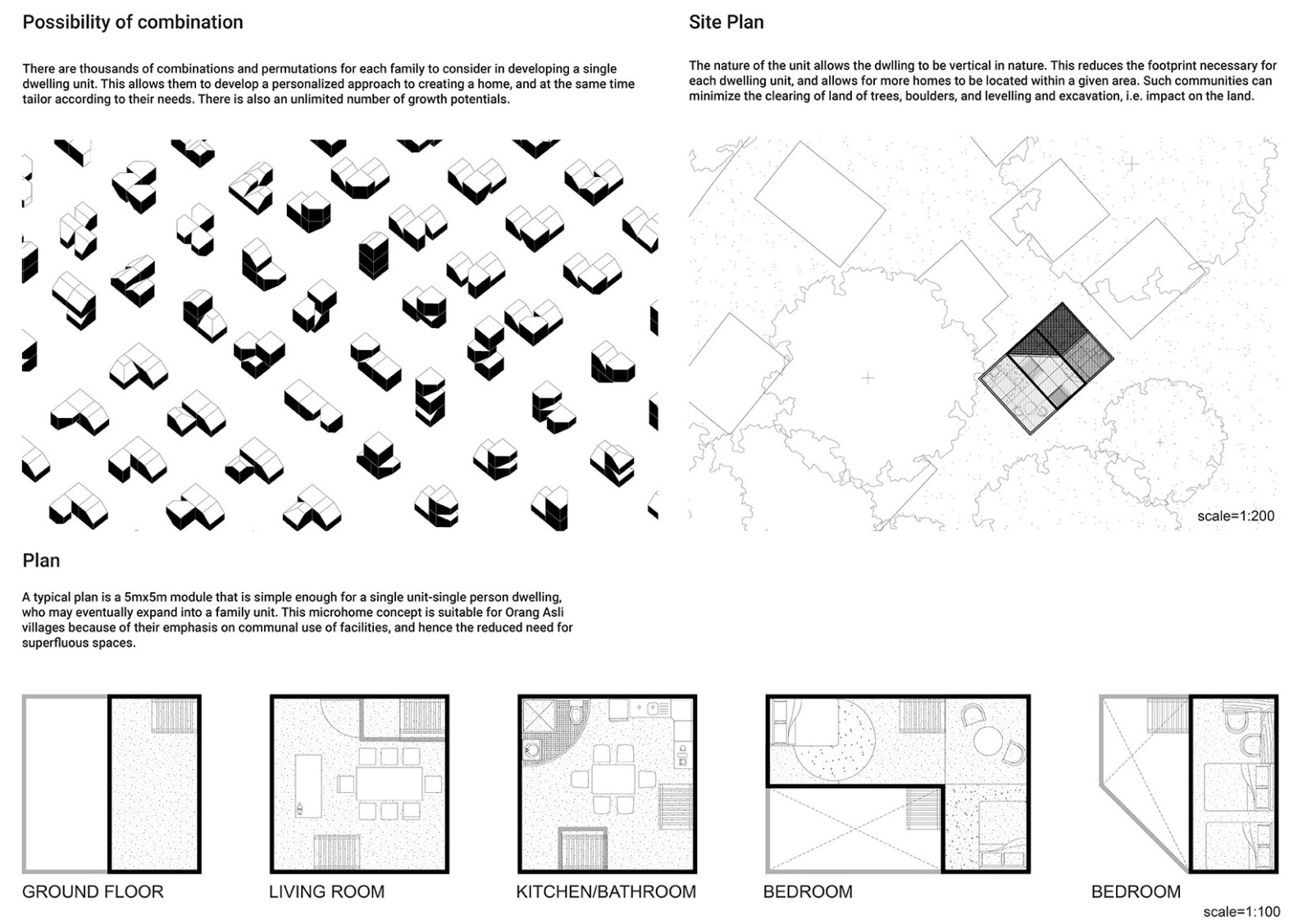
-
Location:
Orang Asli communities, Malaysia
-
Year:
2019
-
Status:
Competition entry
Share project
